Salman Habib
RELDEC: Reinforcement Learning-Based Decoding of Moderate Length LDPC Codes
Dec 27, 2021
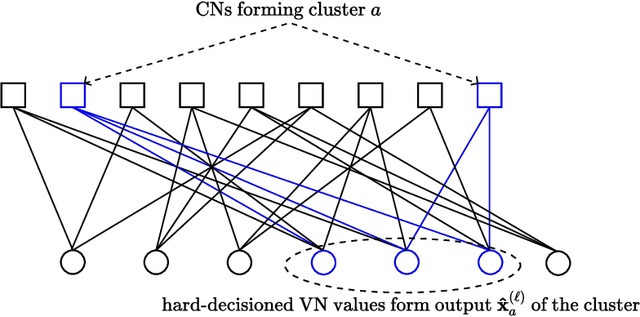
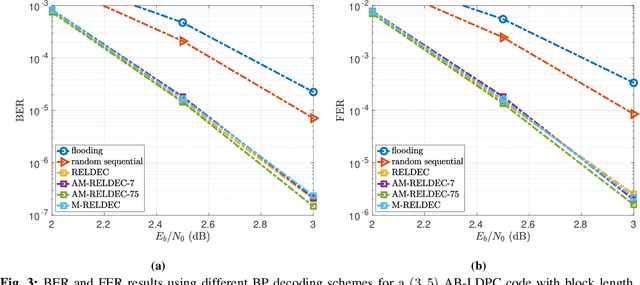
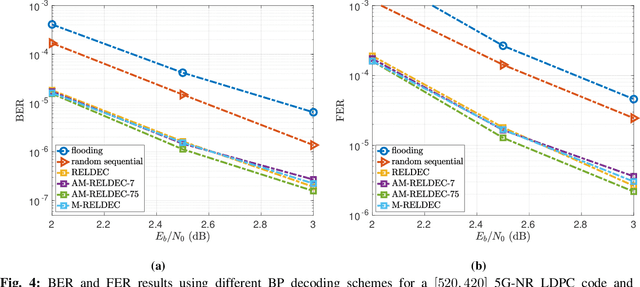
Abstract:In this work we propose RELDEC, a novel approach for sequential decoding of moderate length low-density parity-check (LDPC) codes. The main idea behind RELDEC is that an optimized decoding policy is subsequently obtained via reinforcement learning based on a Markov decision process (MDP). In contrast to our previous work, where an agent learns to schedule only a single check node (CN) within a group (cluster) of CNs per iteration, in this work we train the agent to schedule all CNs in a cluster, and all clusters in every iteration. That is, in each learning step of RELDEC an agent learns to schedule CN clusters sequentially depending on a reward associated with the outcome of scheduling a particular cluster. We also modify the state space representation of the MDP, enabling RELDEC to be suitable for larger block length LDPC codes than those studied in our previous work. Furthermore, to address decoding under varying channel conditions, we propose two related schemes, namely, agile meta-RELDEC (AM-RELDEC) and meta-RELDEC (M-RELDEC), both of which employ meta-reinforcement learning. The proposed RELDEC scheme significantly outperforms standard flooding and random sequential decoding for a variety of LDPC codes, including codes designed for 5G new radio.
Modular Deep Learning Analysis of Galaxy-Scale Strong Lensing Images
Nov 10, 2019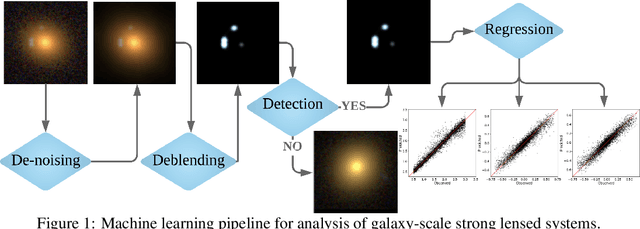
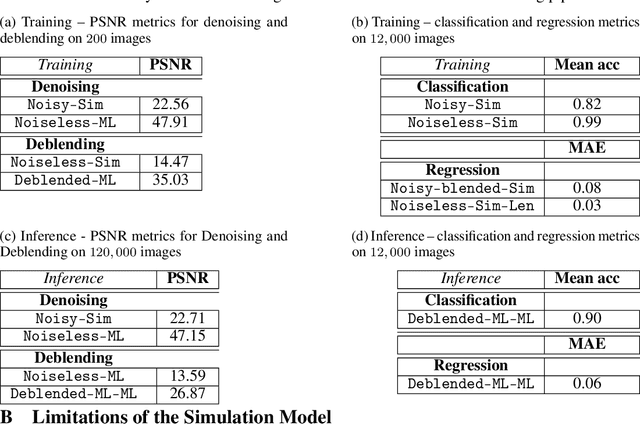
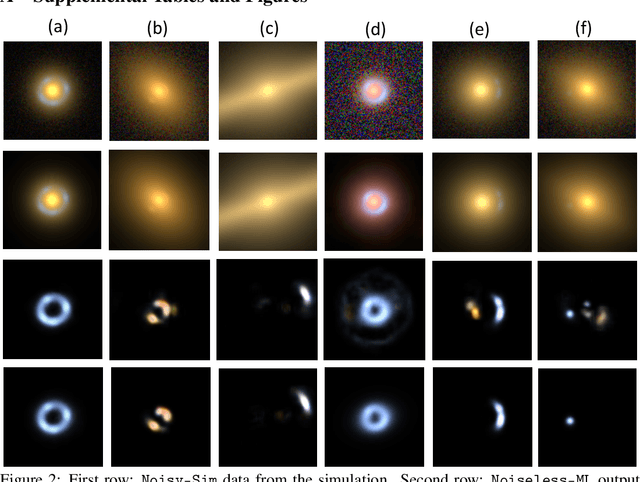
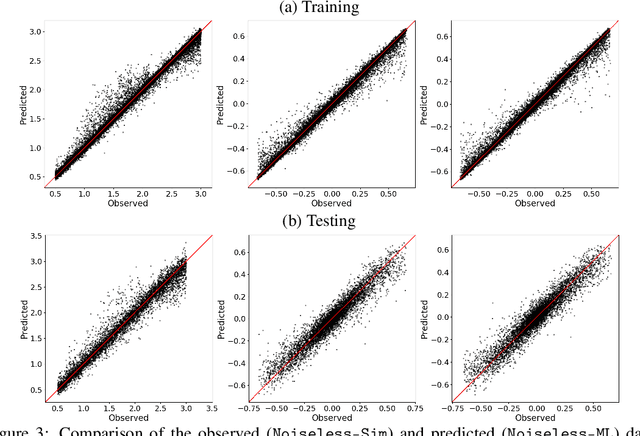
Abstract:Strong gravitational lensing of astrophysical sources by foreground galaxies is a powerful cosmological tool. While such lens systems are relatively rare in the Universe, the number of detectable galaxy-scale strong lenses is expected to grow dramatically with next-generation optical surveys, numbering in the hundreds of thousands, out of tens of billions of candidate images. Automated and efficient approaches will be necessary in order to find and analyze these strong lens systems. To this end, we implement a novel, modular, end-to-end deep learning pipeline for denoising, deblending, searching, and modeling galaxy-galaxy strong lenses (GGSLs). To train and quantify the performance of our pipeline, we create a dataset of 1 million synthetic strong lensing images using state-of-the-art simulations for next-generation sky surveys. When these pretrained modules were used as a pipeline for inference, we found that the classification (searching GGSL) accuracy improved significantly---from 82% with the baseline to 90%, while the regression (modeling GGSL) accuracy improved by 25% over the baseline.
 Add to Chrome
Add to Chrome Add to Firefox
Add to Firefox Add to Edge
Add to Edge